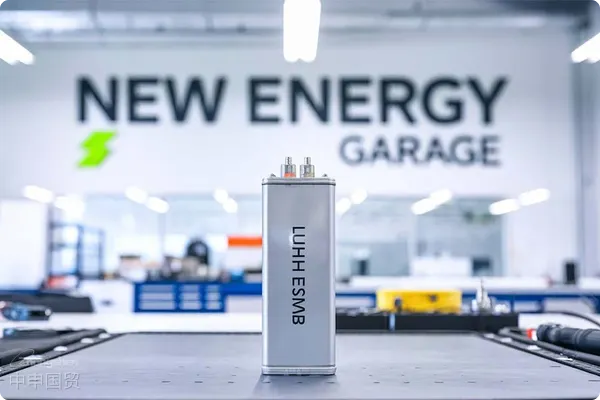- Shanghai Zhongshen International Trade Co., Ltd. - Two decades of trade agency expertise.
- Service Hotline: 139 1787 2118

Specialize in Lithium BatteriesMaritime TransportationExport RepresentationBusiness! Provide all - round service to ensure logistics safety! Rich experience and familiar with policies and regulations! An efficient team helps you go global smoothly! Lets work together to create brilliance!
With the development of the global economy and the increasing prosperity of international trade, lithium - ion batteries, as an important energy storage device, have an ever - growing demand for sea - freight exports. This article will introduce you to the relevant content of lithium - ion battery sea - freight export agency, including industry conditions, operation processes, contract key points, and precautions, etc.
I. Industry Conditions
According to the data of international market research institutions, the global lithium - ion battery market has shown a rapid growth trend in the past few years. It is expected that by [specific year], the global lithium - ion battery market size will reach [specific amount]. This growth trend is mainly due to the widespread application of electronic products such as electric vehicles, smartphones, and tablets, as well as the rapid development of the renewable energy field.
In terms of lithium - ion battery sea - freight exports, since lithium - ion batteries are dangerous goods, their transportation needs to strictly comply with the International Maritime Dangerous Goods Code. Therefore, it is crucial to choose a professional lithium - ion battery sea - freight export agency company. These agency companies usually have rich experience and professional knowledge and can provide customers with all - round services, including cargo packaging, transportation, customs declaration, insurance, etc.
II. Operation Process
Cargo Preparation
Transportation Arrangement
Customs Declaration
Insurance
Tracking and Monitoring
III. Contract Key Points
Contracting Parties
Service Content
Fees and Payment Methods
Responsibilities and Obligations
Dispute Resolution
IV. Precautions
Policies and Regulations
Different countries and regions have different policy and regulatory requirements for the transportation and export of lithium - ion batteries. Before engaging in lithium - ion battery sea - freight export agency, it is necessary to understand the relevant policies and regulations of the destination country or region to ensure the smooth export of the goods.
Packaging and Marking
Lithium - ion batteries are dangerous goods and need to be professionally packaged and marked. The packaging materials must meet the requirements of the International Maritime Dangerous Goods Code, and the marks and labels must clearly and accurately indicate the nature, quantity, weight, and other information of the cargo.
Transportation Safety
During the transportation of lithium - ion batteries, dangerous situations such as fires and explosions may occur. Therefore, when choosing a shipping company and transportation method, the safety and reliability of the goods need to be considered. At the same time, it is also necessary to strengthen the monitoring and management of the goods to ensure their safety during transportation.
Customs Declaration and Inspection
The customs declaration and inspection of lithium - ion batteries need to strictly comply with relevant regulations and procedures. Before conducting customs declaration and inspection, relevant documents and materials such as invoices, bills of lading, and customs declaration forms need to be prepared. At the same time, it is also necessary to cooperate with the work of customs and inspection agencies to ensure that the goods can pass customs declaration and inspection smoothly.
Insurance and Compensation
During the transportation of lithium - ion batteries, losses and damages may occur. Therefore, before engaging in the sea freight export agency of lithium - ion batteries, it is necessary to purchase insurance for the goods to ensure their safety. At the same time, it is also necessary to understand the insurance terms and compensation standards to ensure timely compensation in case of losses and damages to the goods.
In conclusion, the sea freight export agency of lithium - ion batteries is a complex business that requires professional knowledge and experience. When choosing an agency company, factors such as its qualifications, experience, and service quality need to be considered. At the same time, it is also necessary to strengthen the management and monitoring of the goods to ensure their safe and smooth export.
Related Recommendations
? 2025. All Rights Reserved. Shanghai ICP No. 2023007705-2  PSB Record: Shanghai No.31011502009912
PSB Record: Shanghai No.31011502009912








